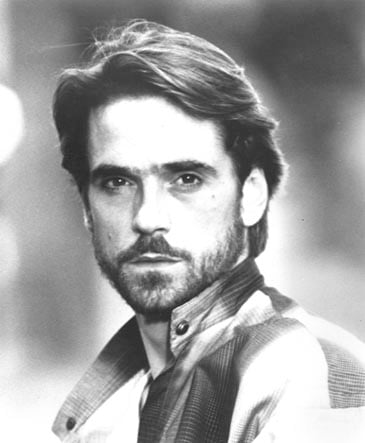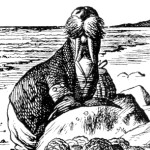 The existence of this recording has restored my faith in the Internet – and, quite possibly, in humanity itself. (Sorry. I haven’t decided exactly how much hyperbole to use.)
The existence of this recording has restored my faith in the Internet – and, quite possibly, in humanity itself. (Sorry. I haven’t decided exactly how much hyperbole to use.)
Thanks to BBC Radio 4 and jeremyirons.net, I am happy to present T.S. Eliot’s “The Waste Land,” featuring Jeremy Irons and Eileen Atkins. (The recording has some introductory material that attempts to set Eliot’s work in appropriate historical context; the recitation itself begins around the 16-minute mark).
Jeremy Irons Reads T.S. Eliot’s “The Waste Land”
Fantastic stuff, that. And not just because I’d happily listen to Scar reading the proverbial phonebook. It’s fantastic because it reminds me of the only thing that helped Eliot make an ounce of sense to me.
A few years after I’d read “The Waste Land” for the first time, one of my former college professors gave a lecture on Eliot and his poetry, and did more for my understanding of Eliot in an hour and a half than countless months exhausted on its dense references and allusions could ever have done. (Only Hegel’s “Phenomenology of the Mind” left me feeling more clueless than “The Waste Land” after a first read.)
This seismic shift came from the simple fact that he did not begin his lecture by “setting the appropriate historical context” for the poems, or by wading directly into their exhaustive dissection. He simply recited them — wonderfully and with an obvious appreciation (even affection) for them as words instead of just ideas. And I felt like I was hearing them for the first time. (I still vividly remember his recitation of the opening stanzas of “What the Thunder Said.” They didn’t just “say” dry; they sounded dry. By reading them silently to myself, I’d skipped that “hearing” step entirely.)
Hearing his works recited was a sea change for me. And while I’d stop just short of saying I understand as well Eliot (or my professor) might wish — and by “just short,” I mean “miles and miles and miles from comprehension” — my ability to understand and appreciate them increased exponentially. Irons’ voice bolsters that even further.
Bonus: The man himself reads his “Four Quartets.”
Double Bonus: This is a completely different “Waste Land,” but fascinating in its own right.












